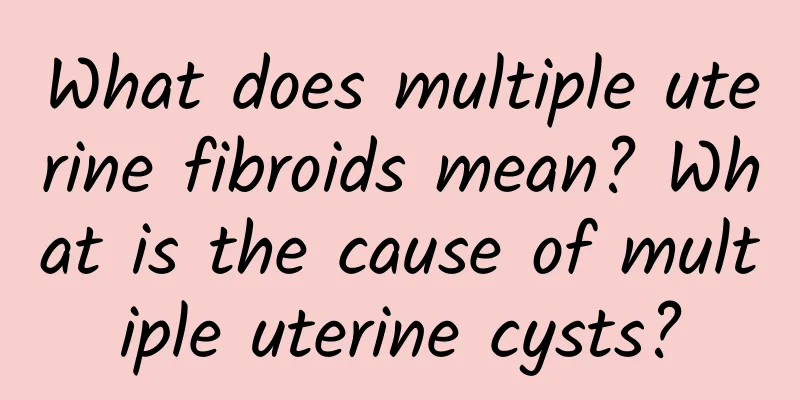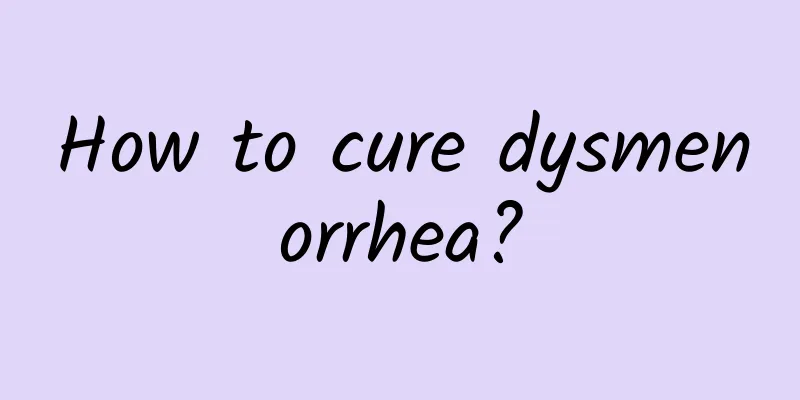What does multiple uterine fibroids mean? What is the cause of multiple uterine cysts?

|
What does multiple uterine fibroids mean? What are multiple uterine cysts? Uterine fibroids refers to a condition in which multiple fibroids grow in the uterus at the same time. Fibroids are benign tumors that are common in women, especially those in middle age. They usually grow on the wall of the uterus, but can also occur in the endometrium or outside the uterus. Although fibroids themselves are not cancer, their growth may cause some discomfort and complications. Multiple uterine cysts are when a woman has more than one cyst in her uterus at the same time. Cysts form when cysts in the ovaries fail to rupture and release eggs properly. They are usually asymptomatic, but can cause pain and other discomfort if the cysts are large or develop other complications, such as rupture or rotation. Multiple uterine fibroids and multiple uterine cysts are two different conditions, but they are both related to the female reproductive system. Multiple uterine fibroids refer to the presence of multiple fibroids in the uterus at the same time, while multiple uterine cysts refer to the presence of multiple cysts in the uterus at the same time. The specific causes of multiple uterine fibroids and multiple uterine cysts are not fully understood. However, some studies have shown that increased levels of estrogen may be related to their formation. The incidence of multiple uterine fibroids and multiple uterine cysts is also related to age, with women between 40 and 50 years old more likely to suffer from these conditions. For the treatment strategy of multiple uterine fibroids and multiple uterine cysts, doctors usually customize individualized treatment plans based on the severity of the disease, the manifestation of symptoms, and the patient's age and fertility needs. Treatment options include observation, drug therapy and surgery. During the observation phase, the doctor will regularly check the condition and determine whether further treatment is needed based on the size and growth rate of the fibroids or cysts. Medication can reduce symptoms by adjusting hormone levels, but it cannot completely eliminate fibroids and cysts. Surgery is usually considered a last resort and is mainly used in cases of severe symptoms or complications. In general, multiple uterine fibroids and multiple uterine cysts are common diseases in women. Early diagnosis and reasonable treatment are the key to preventing complications and relieving symptoms. Therefore, female friends should maintain regular gynecological examinations, detect problems in time and seek medical help. Through scientific treatment methods, symptoms can be effectively alleviated and the quality of life can be improved. Of course, a healthy lifestyle and eating habits are also one of the important factors in protecting the health of the female reproductive system. |
<<: What medicine can eliminate uterine fibroids? Uterine fibroids are most afraid of three actions
>>: What are the symptoms of uterine fibroids? What causes uterine fibroids?
Recommend
If you love eating salads to lose weight in the summer, be careful that it will lower your metabolism! Traditional Chinese Medicine: Avoid 4 major landmines when losing weight, and press 3 major acupoints to eliminate edema
Someone described it as: "Spring is the seas...
Turmeric + black pepper for slimming and skin beautification! Say goodbye to being single on Singles Day with him
This Friday is November 11th, Singles' Day. T...
I have gynecological inflammation but I need an abortion urgently.
I have gynecological inflammation but I need an a...
Reasons that may cause irregular menstruation in life
In life, many women suffer from irregular menstru...
Uncover the causes of cervical hypertrophy and be a healthy woman
What are the causes of cervical hypertrophy? Cerv...
There is a science to body beauty! 5:3:2 three meals a day is the fastest way to lose weight
The less fat, the more obvious the muscle lines M...
Will cervical warts recur?
Cervical warts are a highly contagious sexually t...
Is it okay to remove hair right after menstruation? How to remove hair after menstruation?
Women are now facing an embarrassing season of ex...
What medicine should women take to regulate their menstrual disorders? Chinese medicine prescriptions for women with irregular menstruation
What medicine should be taken to regulate irregul...
Does ovarian cysts have a big impact on pregnant women?
Many patients do not know the condition of ovaria...
Preoperative preparations for abortion
Repeated induced abortions may affect subsequent ...
What are the changes of uterine fibroids in a week? How big can uterine fibroids grow in a week?
What are the changes in uterine fibroids in a wee...
The main harmful manifestation of painless abortion
There are many types of abortions, and painless a...
What to eat for pelvic effusion?
What should I eat for pelvic effusion? 1. Pelvic ...
Lose weight and avoid starvation! Eat the right vegetables to increase satiety and control blood sugar
[Key Points]: If the proportion of vegetables in ...









